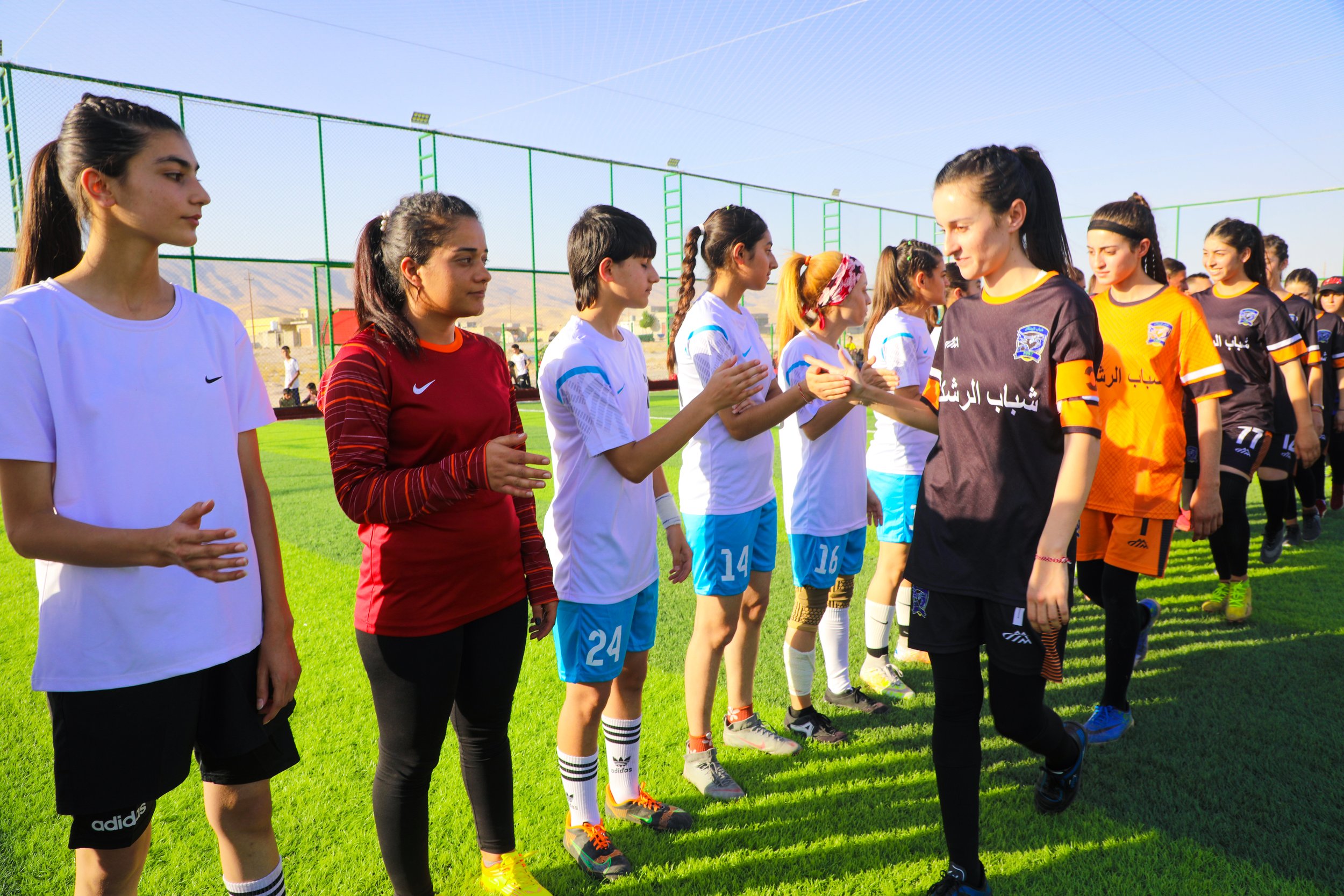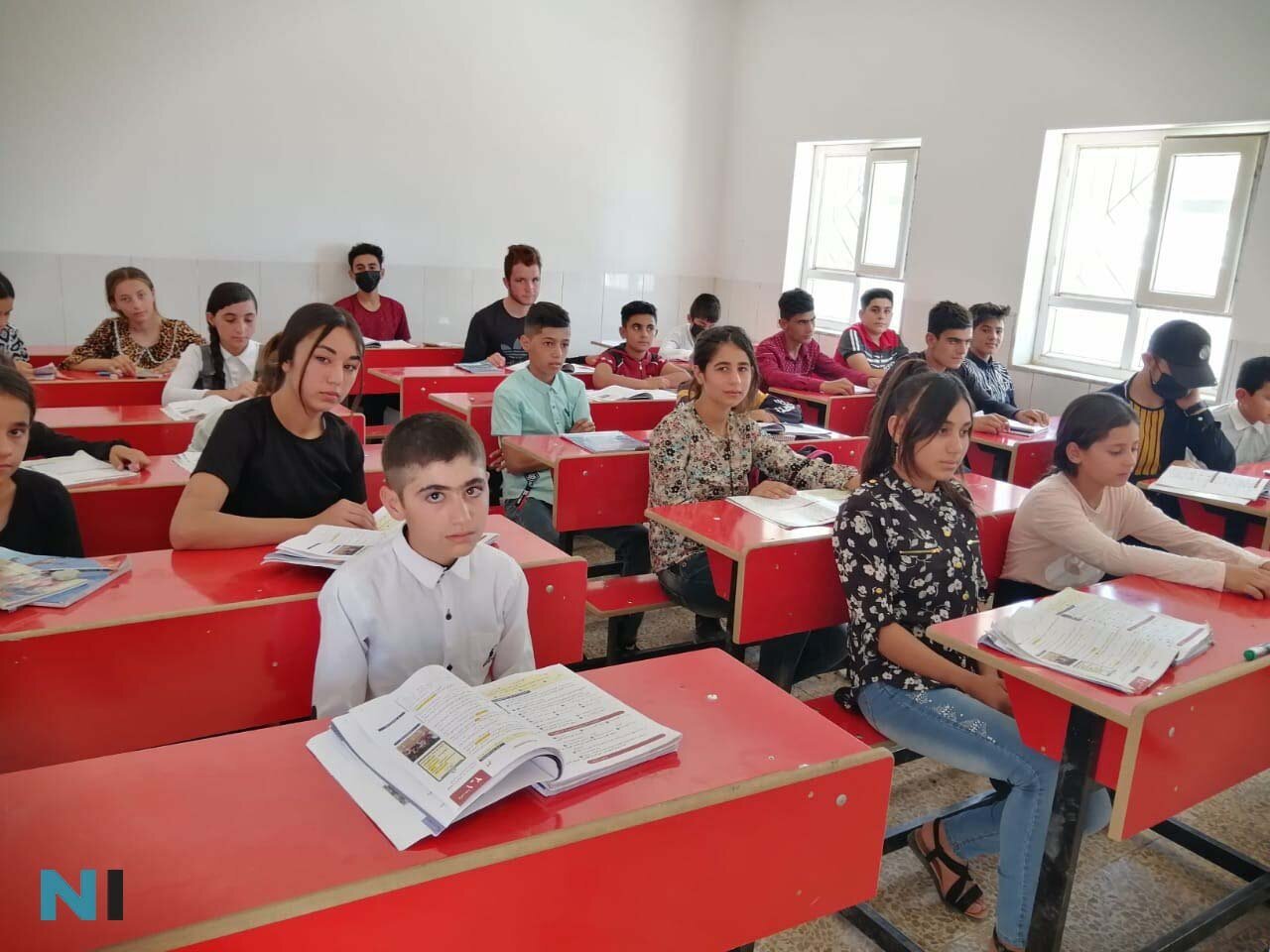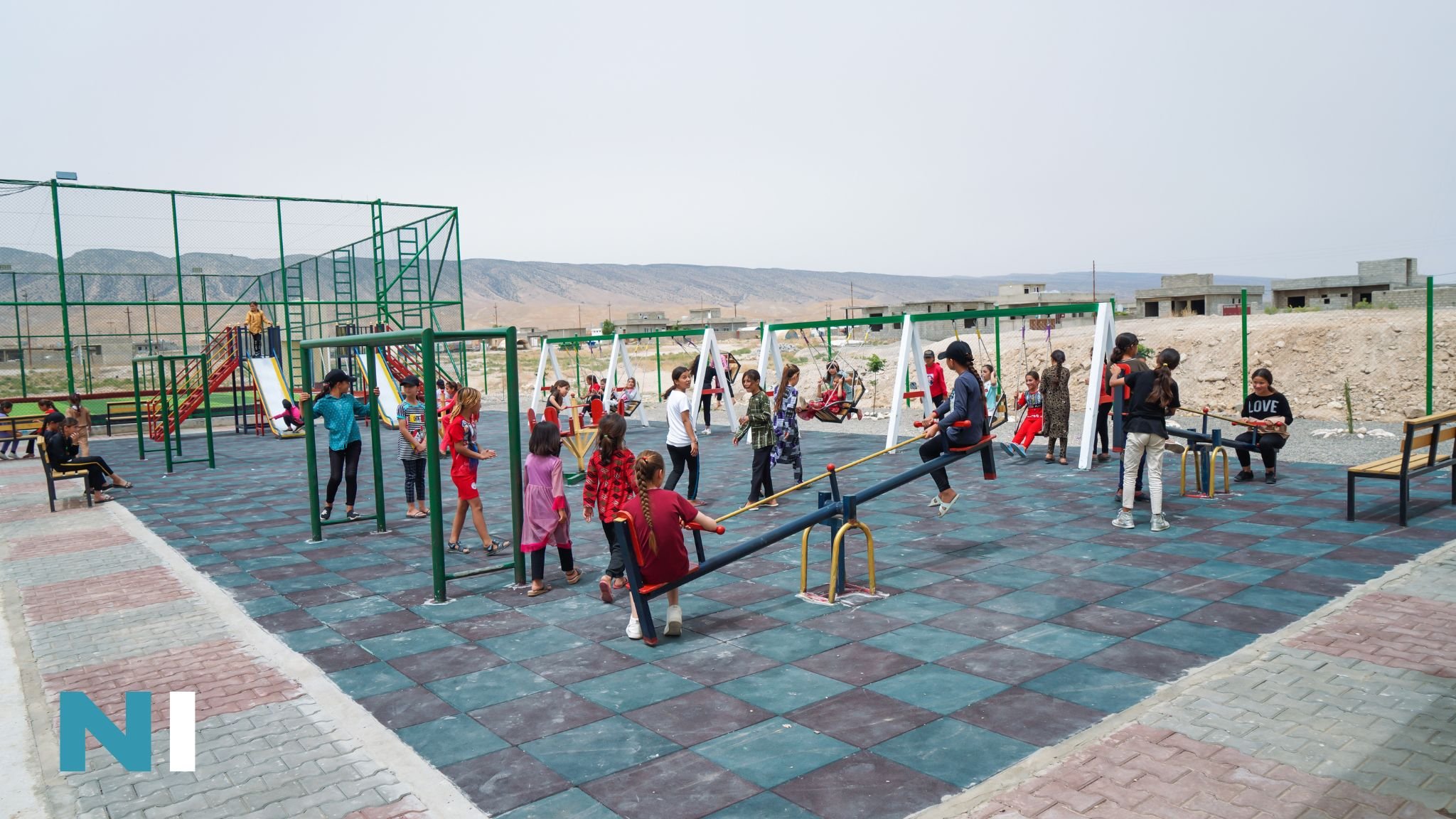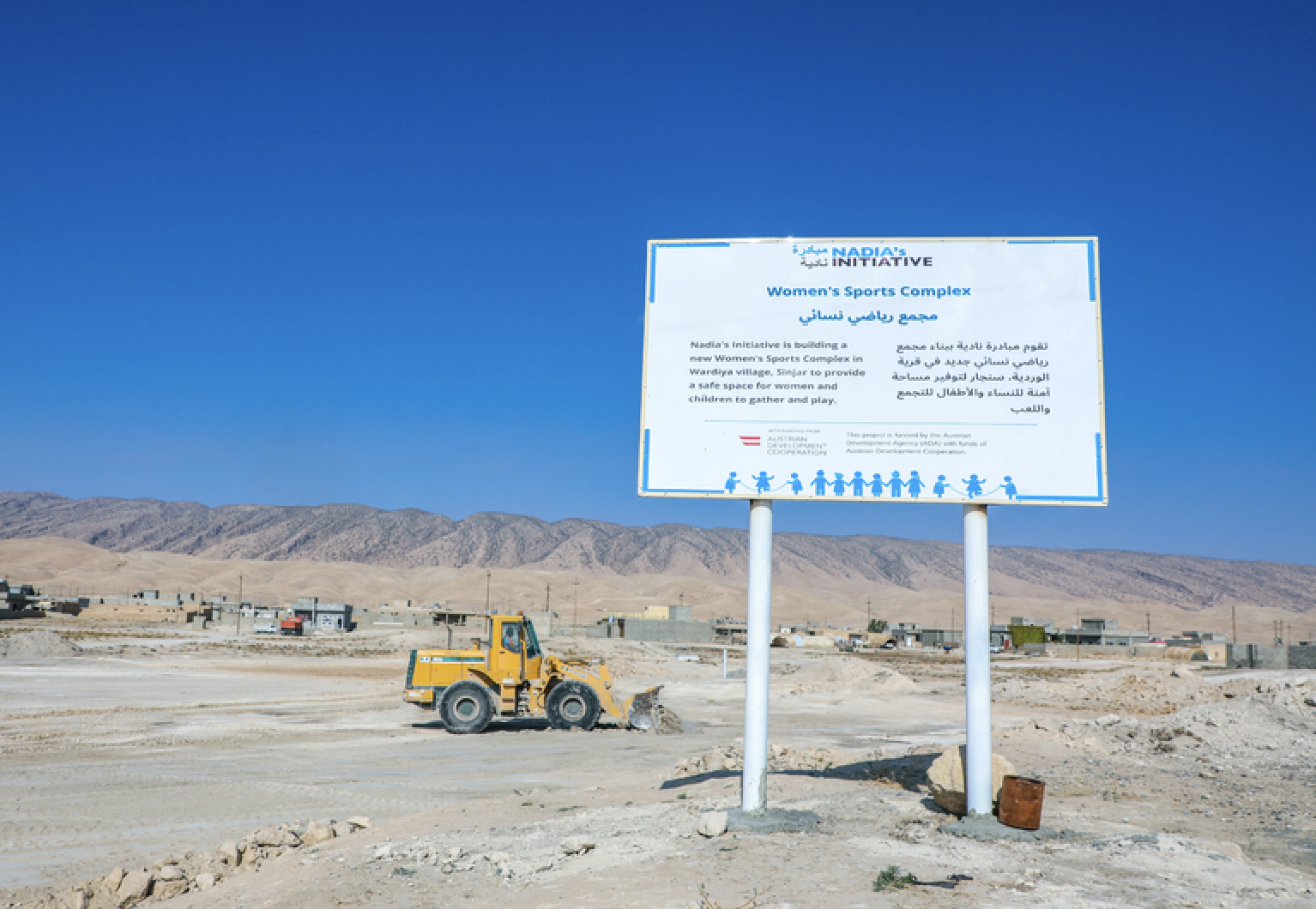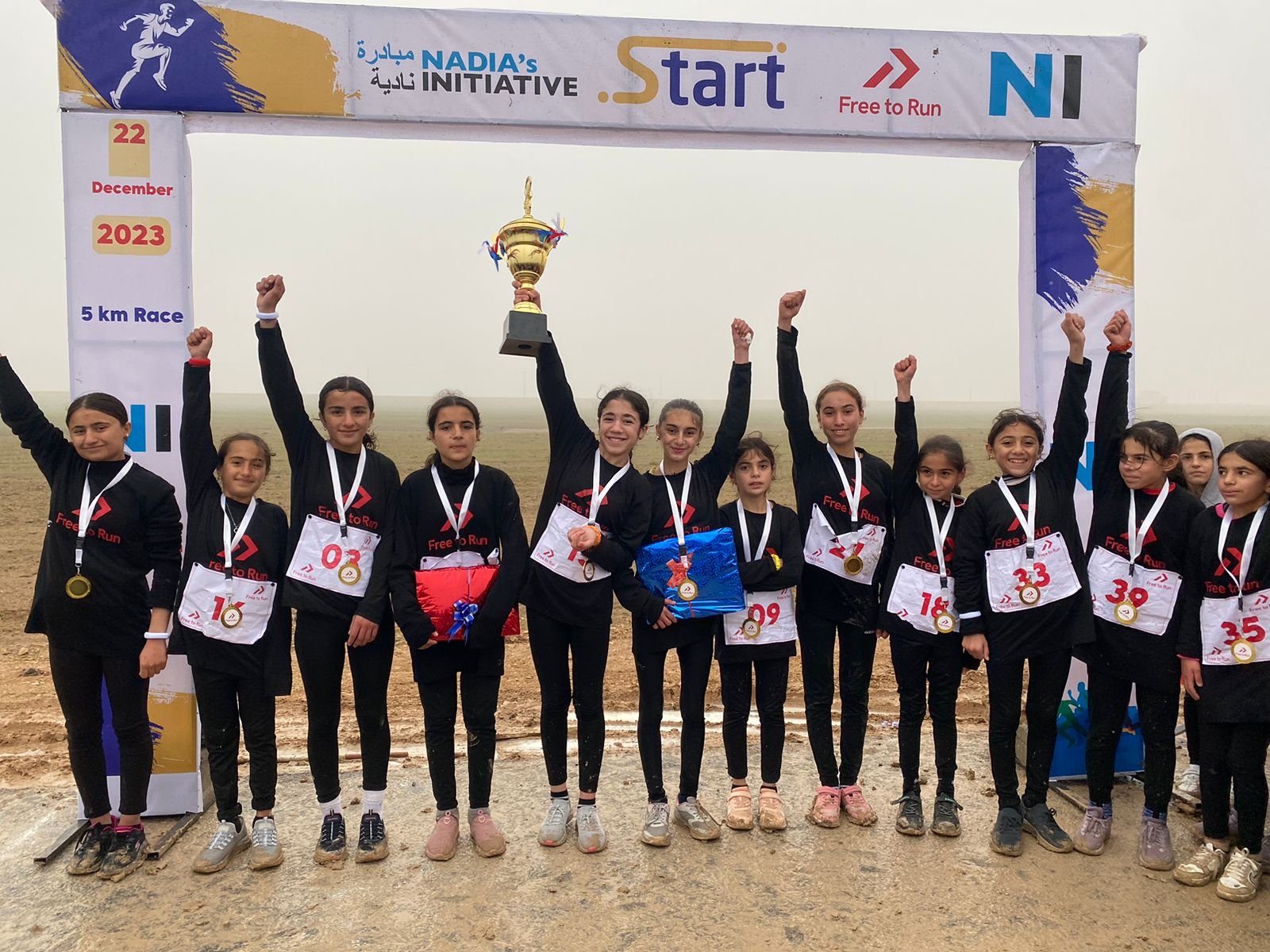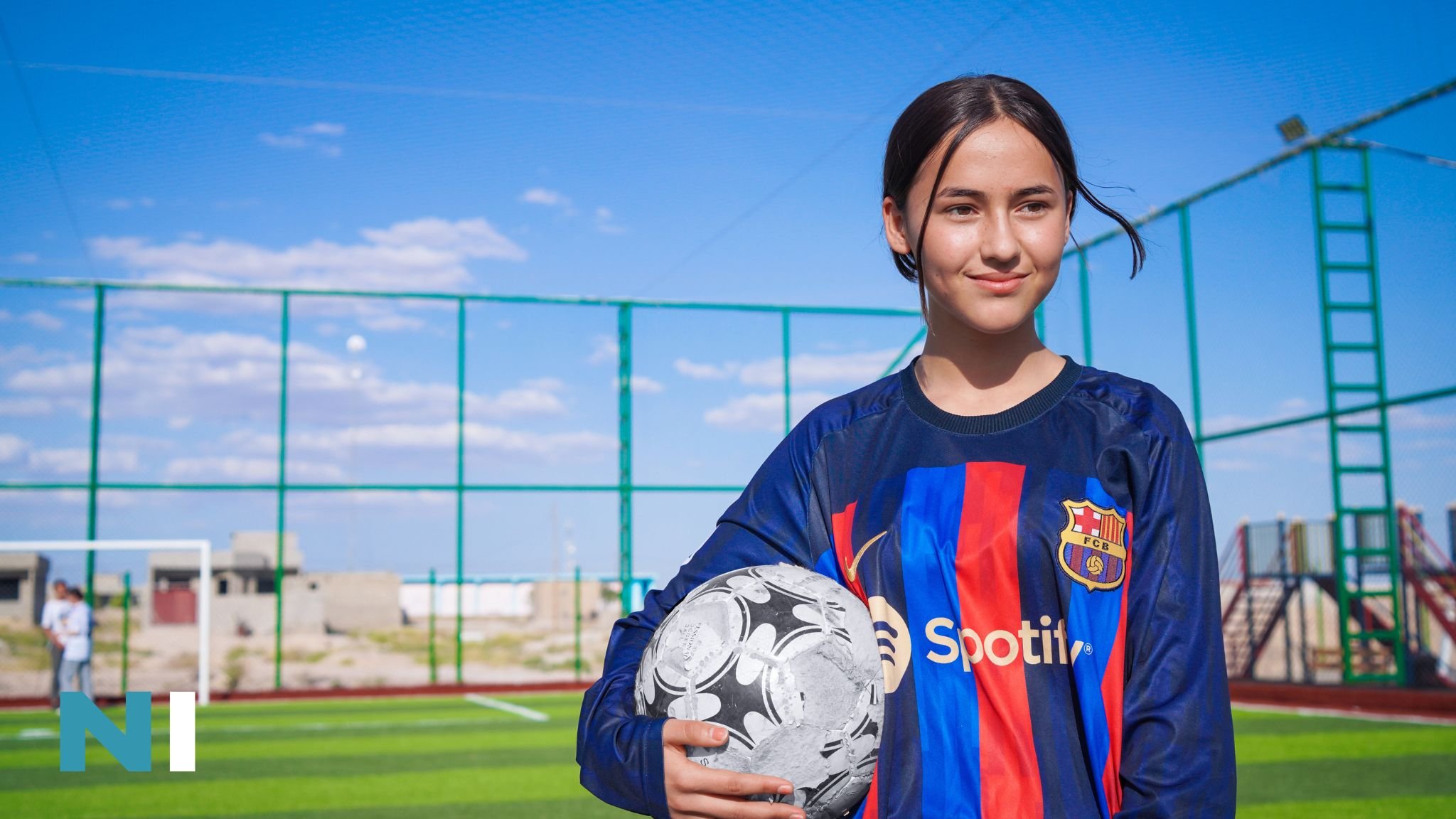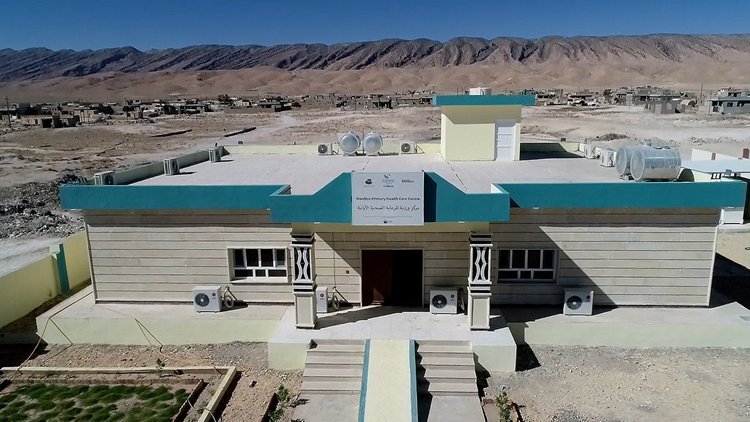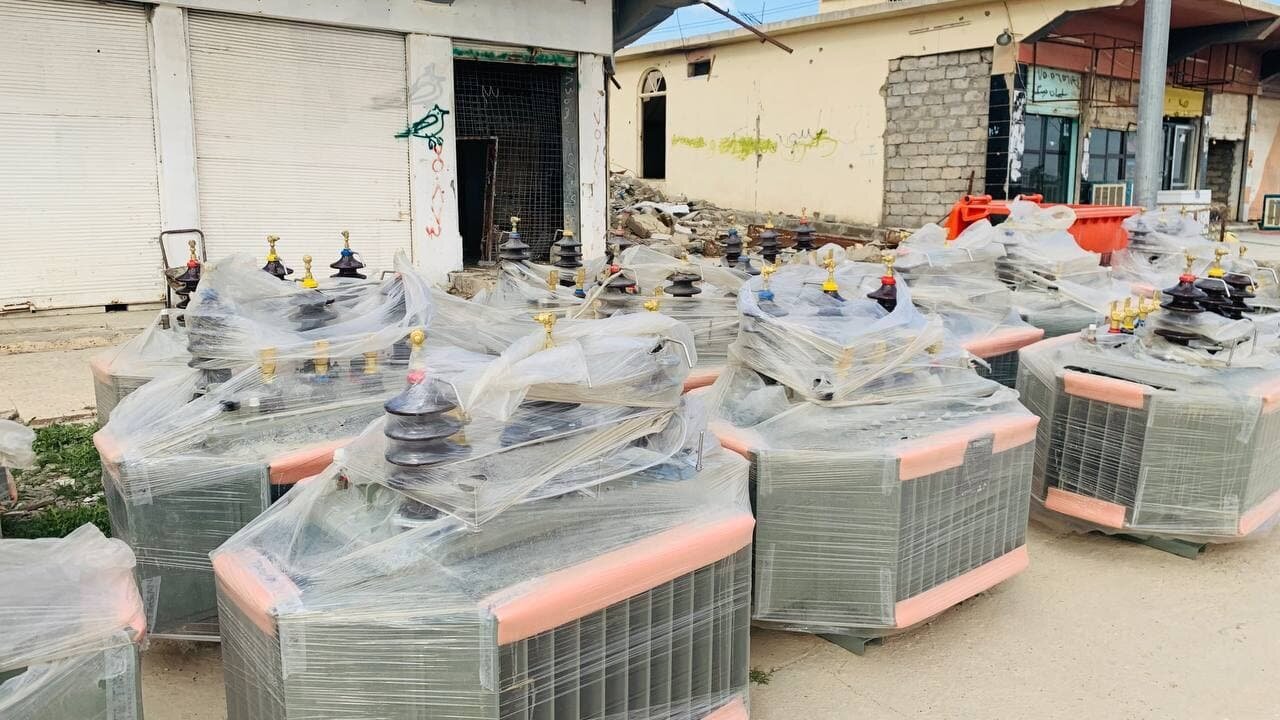Stories from Sinjar: Wardiya’s Journey from Ruins to Resilience
“I was heartened to visit Wardiya village, which stands out as one of the best examples of a resilient and determined community. Once their village was liberated, the community returned home and started rebuilding. In the absence of help from the government, NI stepped in and supported them in the redevelopment process.”
-Nadia Murad
South of Sinjar Mountain, the small village of Wardiya is in the midst of a remarkable renewal. Nearly a decade ago, like many other villages across the Sinjar region, Wardiya faced one of the darkest chapters of its history: the brutal genocide carried out by ISIS starting in August 2014. Many were killed or taken into captivity, while the rest of the population fled the village with whatever they could carry. ISIS then destroyed or damaged most of Wardiya’s basic infrastructure, hoping to prevent residents from ever returning.
But in 2017, ISIS was defeated; Sinjar was liberated; and, in defiance of the terrorists who had taken so much from them, residents of Wardiya returned to their village and took up the difficult task of rebuilding.
They could not do this work alone, however. With the generous support of key partners across the international community, Nadia’s Initiative stepped in to facilitate the reconstruction and rehabilitation of infrastructure Wardiya residents would need to reclaim their home.
Education
Guided by requests from survivors of the ISIS genocide and in partnership with local organizations, NI first rebuilt Wardiya’s Primary School. Before the school reopened in 2019, more than 430 students in the village whose family could afford transportation traveled 30km round trip each day to attend school in Sinjar City, while others received no education at all.
Today, thanks to NI’s assistance, those 430 students and many others once again have a school in their own backyard that continues to attract more students from other Yazidi families resettling in the area – as well as dozens of trained teachers who now provide local students with the high-quality education they deserve.
Healthcare and Livelihoods
Next, through continued consultations with Yazidis returning to Wardiya, NI identified an urgent need for healthcare access and electricity. Within two years of reopening the Wardiya Primary School, NI had successfully rehabilitated the village’s Primary Healthcare Center – which quickly began providing basic care and protective equipment to nearly 800 residents at the height of the COVID-19 pandemic – and worked with the Sinjar Electricity Directorate to reestablish electricity access for nearly 11,500 people.
Turning the lights back on in Wardiya has helped keep Wardiya’s schools and healthcare centers running and put Yazidids back to work across Sinjar. And, equipped with tools and training provided by NI, the Electricity Directorate now has the internal capacity to sustainably manage and maintain grid operations going forward.
Women’s Empowerment
Although NI’s interventions in education, healthcare, and livelihoods were vital in getting Wardiya back on its feet, few projects have done as much for the village as the Women’s Sports Complex.
Built by NI from the ground up at the direct request of survivors, the complex opened in 2023 and now provides a safe place where more than 1,000 women and young people from across Sinjar have come together to find community, empowerment, and healing through sport.
One of those survivors, Najwa, was forced to flee Sinjar when she was only six years old. Today Najwa and her family have returned to the region – and thanks to the Women’s Sports Complex, Najwa has gained the courage and confidence needed to excel both on the athletic field and in the classroom.
“Every time I trained,” Najwa said, “I tried to forget the feeling of being alone.” Now, Najwa encourages other young girls in Sinjar to seek out opportunities and rise above challenges, reminding them that they, too, are not alone – and, like her, can achieve their dreams
Perspectives from Wardiya
Nadia recently traveled to Wardiya, where she visited the healthcare centers, schools, and Women’s Sports Complex now frequented by the many Yazidis who have returned to the village after so many years of displacement.
While there, Nadia met with Wardiya’s community leader, who thanked Nadia and NI for their help in bringing the village back to life: “You have delivered our voice to the world and let them know we have suffered,” he said. “You have provided us with schools, hospitals, and electricity. And you have given us the strength and courage to return home.”
Championing Locally-Led Development
Although repairing buildings is important, NI’s true mission in Sinjar – and on behalf of survivors of sexual violence in conflict worldwide – has been to increase access to opportunity, restore hope, and honor the courage and resilience of local communities.
NI’s overarching model is to serve as a support structure, not a replacement, for locally-led development efforts in communities in crisis. In recognition of this commitment, USAID recently asked Nadia to serve on its Advisory Committee on Voluntary Foreign Aid, where she meets regularly with other leaders from across the public and private sectors to share best practices in – and affirm NI’s commitment to – locally-led development solutions in Iraq and around the world.
